The Donald W. Reynolds Journalism Institute (RJI) at the Missouri School of Journalism has partnered with respected research firm SmithGeiger for a groundbreaking survey to find solutions to burnout in the news industry. The survey takes approximately 15 minutes to complete and is available here.
An estimated 70% of journalists have experienced work-related burnout, with experts saying younger journalists are at higher risk. At a time when new technology, changing revenue models and a crisis of public trust are contributing to a rapid pace of change in journalism, RJI and SmithGeiger seek to gain on-the-ground insights from journalists about the issues that lead some to exit the profession while others thrive.
“The pandemic brought the issue of burnout into focus for a lot of people, but the underlying factors that lead to high stress, exhaustion and trauma have not gone away,” said Randy Picht, executive director of RJI. “Just like a good reporter would do, we wanted to go directly to the source and see what journalists have to say about their work environment.”
The 15-minute online survey, which is anonymous and open to news organizations anywhere in the country through November, is not RJI’s first partnership with SmithGeiger. The partners previously worked together on a national survey to determine the most effective ways to educate the public about COVID-19 vaccines, research that helped lead to a COVID-19 messaging toolkit for local journalists.
This time around, the survey aims to help news leadership focus their resources on effective solutions for burnout. It will gather perspectives across all news mediums and from a diverse range of voices representing a comprehensive cross-section of the industry.

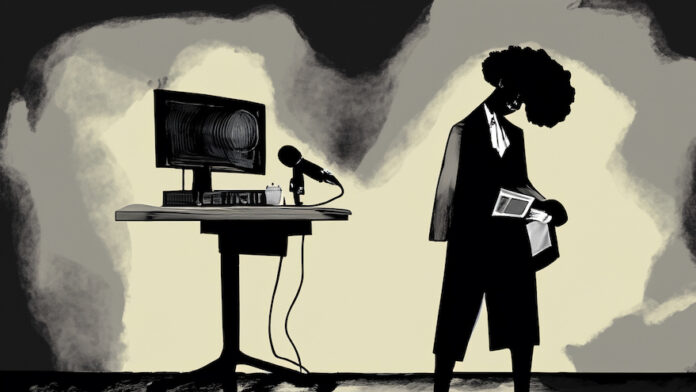
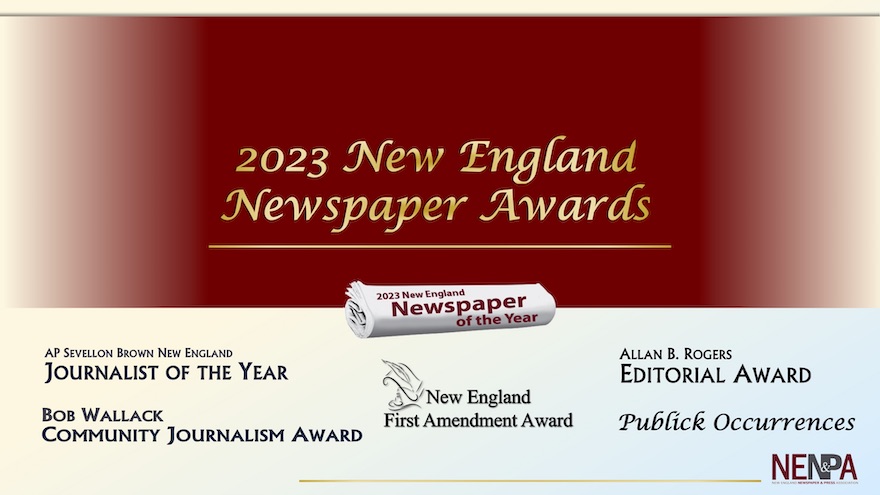
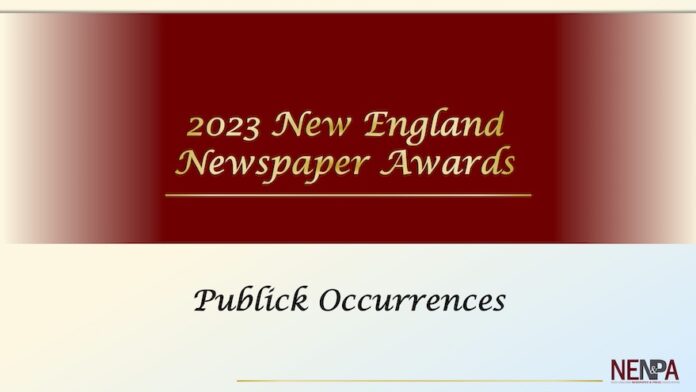
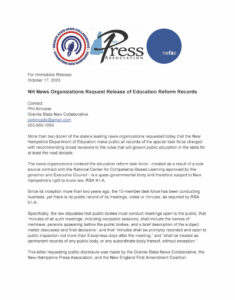 More than two dozen of the state’s leading news organizations requested today that the New Hampshire Department of Education make public all records of the special task force charged with recommending broad revisions to the rules that will govern public education in the state for at least the next decade.
More than two dozen of the state’s leading news organizations requested today that the New Hampshire Department of Education make public all records of the special task force charged with recommending broad revisions to the rules that will govern public education in the state for at least the next decade.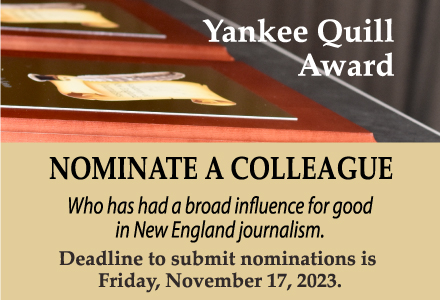
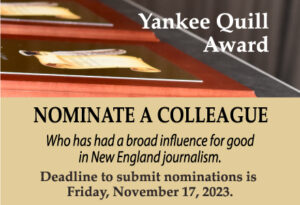 Nominations are now being accepted for the
Nominations are now being accepted for the 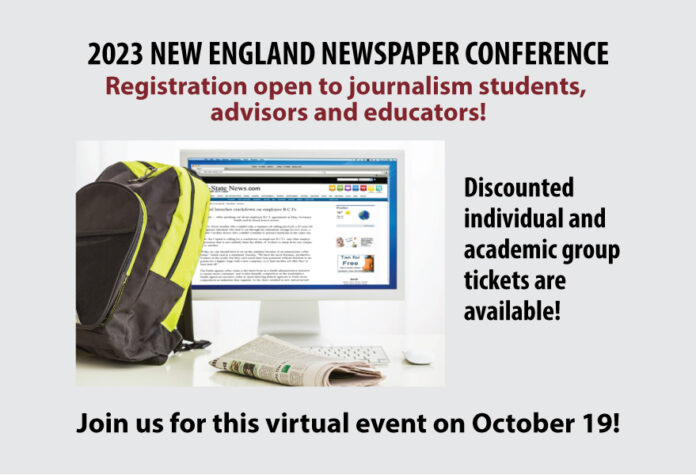
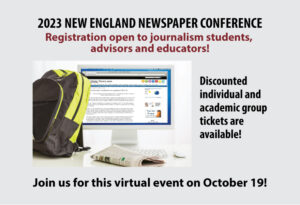 Get ready for an exciting opportunity to connect, learn, and grow at the New England Newspaper Conference on October 19!
Get ready for an exciting opportunity to connect, learn, and grow at the New England Newspaper Conference on October 19!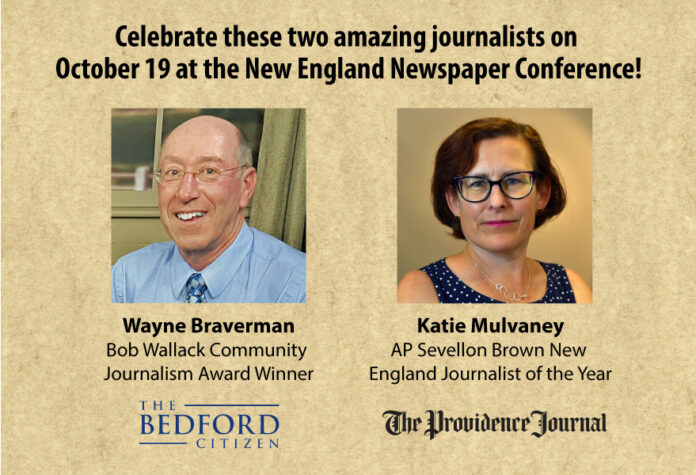
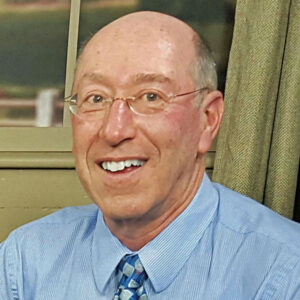
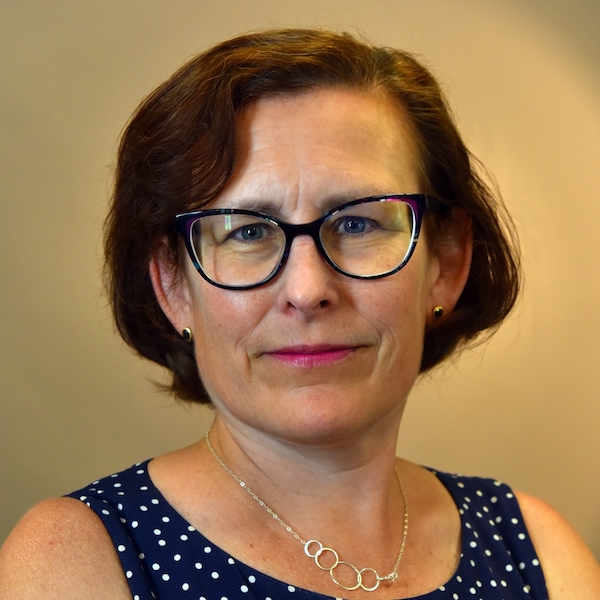
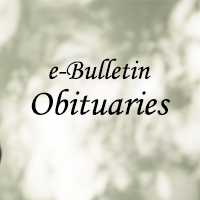
NEFAC receives largest gift ever from the estate of late Boston Globe reporter Gloria Negri
Negri, who died in 2017, spent 53 years at the Globe working in several roles including columnist and foreign correspondent. The estate bequeathed $818,125 to the coalition for journalism education and programming.
The bequest will be used to support and grow NEFAC’s current journalism education programs and services, such as the New England First Amendment Institute, NEFAC Mentors, and 30 Minute Skills. It will also be used to create additional much-needed resources for journalists and newsrooms in the region.
Read more at nefac.org